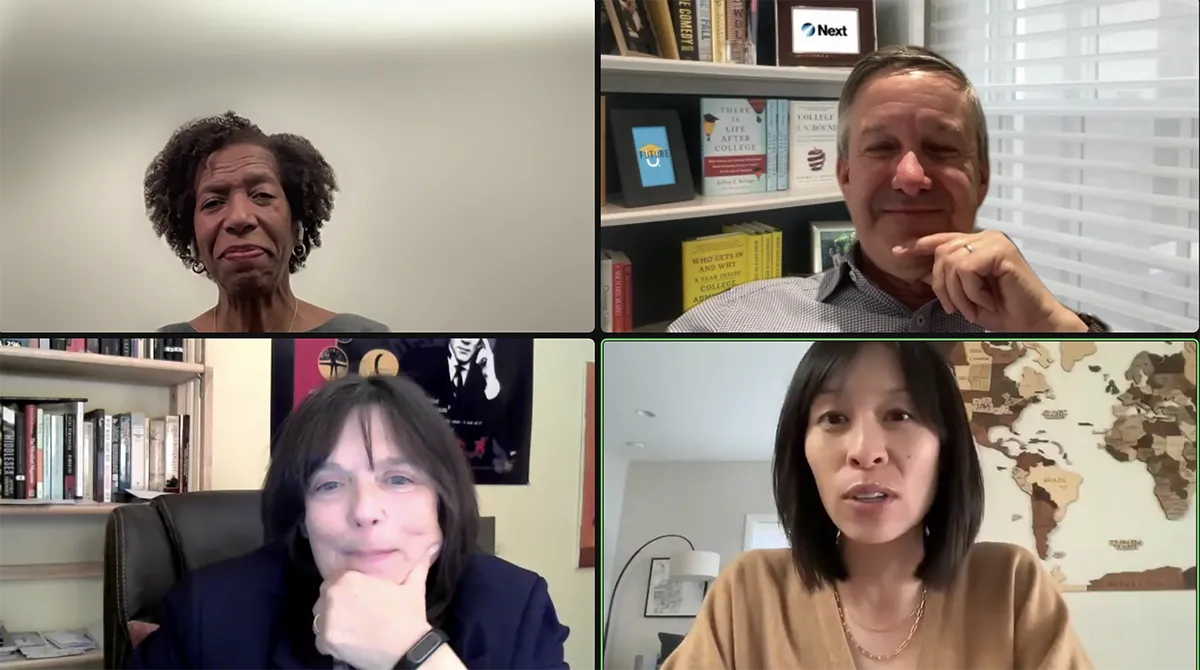Making the transition from high school to college can be one of the most eagerly — and anxiously — anticipated times in a student’s life. On April 11, nearly 400 admitted students and their supporters logged onto Zoom for “Proven Strategies to Ensure Your Success in College,” an online discussion hosted by Ithaca College about successfully navigating that transition and developing the tools to thrive in college.
In a panel moderated by Traci Hughes ’85, a member of the Ithaca College Board of Trustees, three higher education experts took to the screen to share their insights with future Ithaca Bombers. Their actionable advice empowered students to make the most of their college experience, no matter which institution they ultimately choose to attend.
The panelists represented a wide range of backgrounds and were able to speak to different elements of college life, from managing a schedule to exploring career options. Roy H. Park School of Communications alum and Board of Trustees member Jeff Selingo ’95, a higher education journalist and New York Times bestselling author of “Who Gets In and Why: A Year Inside College Admissions,” was the featured speaker of the evening.
